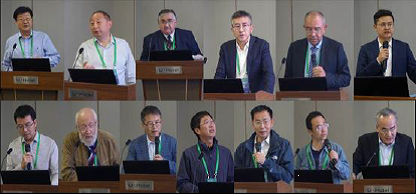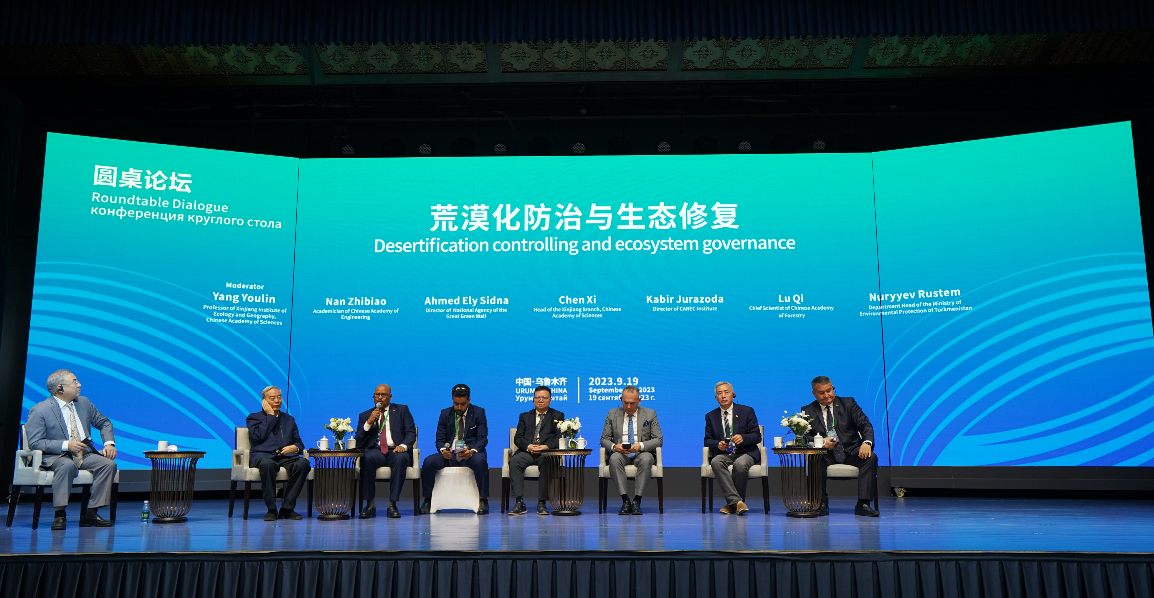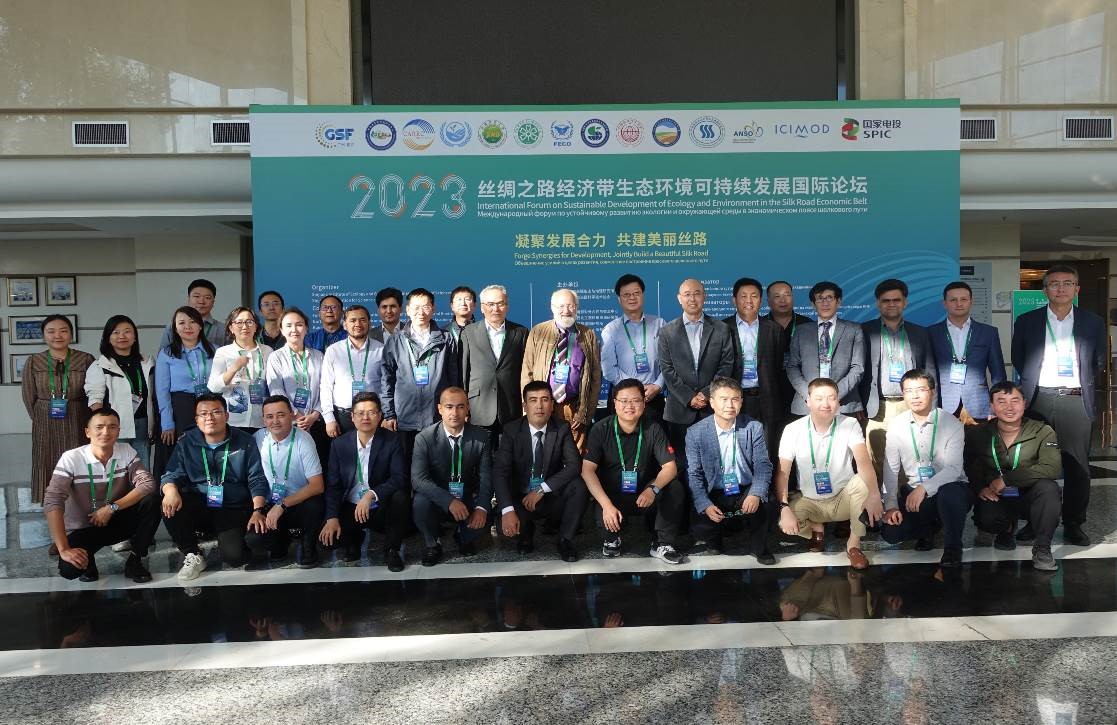The "Sub-Forum on Ecological Monitoring Technology and Application" of the 2023 International Forum on Sustainable Development of Ecology and Environment in the Silk Road Economic Belt was successfully held in Urumqi
The 2023 International Forum on Sustainable Development of Ecology and Environment in the Silk Road Economic Belt was held in Urumqi from Between September 18 and 19. More than 300 experts from 17 countries (including Russia, Iran, Mongolia and Pakistan) attended this Forum under the theme of "Forge Synergy for Development, Jointly Building a Beautiful Silk Road", wherein the latest achievements in biodiversity conservation, green agriculture & food security, ecological restoration and governance were shared, and the establishment of more cooperation mechanisms was explore to expanded new cooperation fields for working with scientists from countries along the Silk Road in addressing urgent scientific issues, promoting the green development of the Belt and Road Initiative.。
At the opening ceremony, eight academicians/experts were specially invited to make reports. On the same day, six sub-forums thereof were also held to discuss hot issues in the fields of biodiversity conservation & sustainable utilization in arid areas, green agriculture & food security, current situation & sustainable utilization of water resources, land degradation & desertification controlling, ecological monitoring technology & application, current situation of grass industry & sustainable development in arid areas.
The "Sub-Forum on Ecological Monitoring Technology and Application" was organized by Xinjiang Institute of Ecology and Geography CAS, Research Center for Ecology and Environment of Central Asia (hereinafter referred to as RCEECA) CAS, and Northwest Institute of Eco-Environment and Resources CAS, and sixty Chinese and foreign scholars from 32 research institutes, universities and related departments of eight countries (including China, Tajikistan, Kazakhstan, Russia, Mongolia, Uzbekistan, Kyrgyzstan and Iran) participated in this event ,which was co-chaired by Researcher Li Yaoming from Chinese Director of RCEECA (Bishkek), Researcher Wang Feiteng from Northwest Institute of Eco-Environment and Resources, and Academician Dzhumataev from Kyrgyz Academy of Sciences.
Thirteen well-known experts from Institute of Tibetan Plateau Research CAS, Institute of Water Issues, Hydroenergy and Ecology, Academy of Sciences of Tajikistan, Land Satellite Remote Sensing Application Center MNR, Xinjiang Institute of Ecology and Geography CAS, Tashkent Institute of Irrigation and Agricultural Mechanization Engineering of Uzbekistan, National Time Service Center CAS, Institute of Geographic Sciences and Natural Resources Research CAS, Russian State University in Moscow, University of the Chinese Academy of Sciences, Institute of Water Issues and Hydropower of the Kyrgyz National Academy of Sciences, Northwest Institute of Eco-Environment and Resources CAS and Secretariat of Greater Bay Area Science Forum made academic reports, wherein they shared the latest progress in ecosystem network architecture, water resources & glacier monitoring technology, application of Beidou satellites and UAV in ecological environment monitoring, and the balance of ecosystem under the Earth Critical Zone.
The attending experts and scholars conducted deep discussions and exchanges on ecological monitoring technology and application, unanimously agreeing that Central and West Asia is located in arid region, with a weak ecological environment, insufficient monitoring stations and relatively underdeveloped monitoring technology, and the ground monitoring data of ecological environment was essential basic data to support regional green and sustainable development, so countries therein should work together to further cooperation in ecological environmental monitoring, including but not limited to establishing unified standards and norms, strengthening the training of scientific research and technical personnel on monitoring capabilities, training talents in big data management and analysis, ensuring data quality and availability, and exploring data sharing models and improving data security management mechanisms.
At the Roundtable Dialogue under the theme "Desertification Controlling and Ecosystem Governance", Researcher Chen Xi (Secretary of Leading Party Group of Xinjiang Branch CAS, Director of RCEECA) addressed that the long-term international cooperation required not only the setting up of cooperation mechanisms, but also the establishment of high-level safeguard mechanisms. As an important platform for international cooperation, RCEECA would work together to attract and gather more scientific research forces and international resources to conduct substantive cooperation among countries along the Belt and Road, and would work together to address and solve regional ecological, environmental and livelihood issues, providing theoretical guidance and scientific & technological services for the green and sustainable development of the Silk Road Economic Belt.

Academic Reports

Roundtable Dialogue Scenario

Group Photo of Sub-Forum

